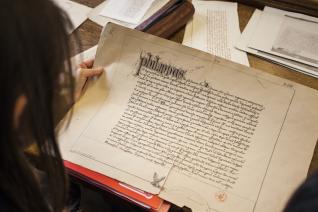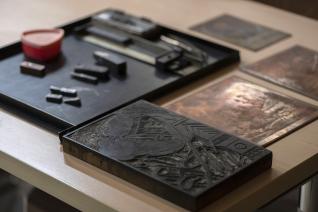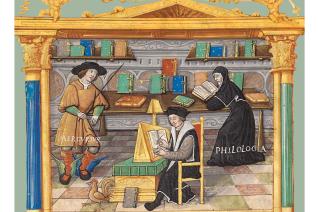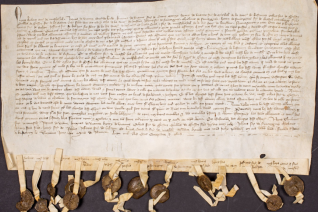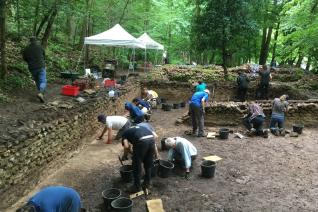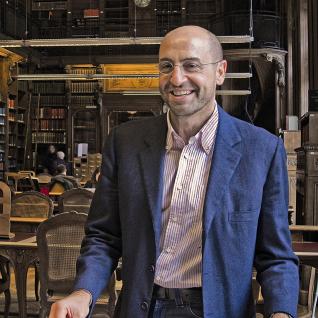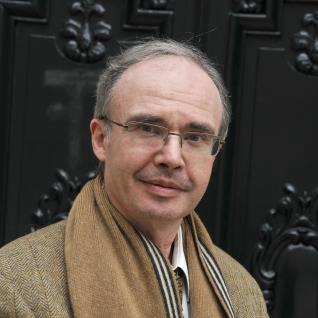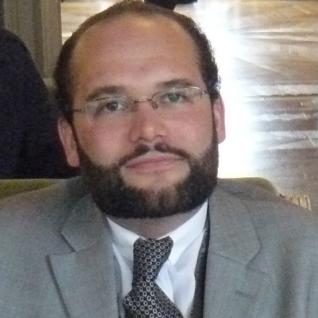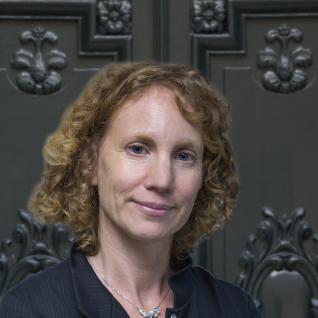Archiviste paléographe
Presentation
The ‘Archiviste paléographe’ diploma was created in 1846. Since then, it has provided future civil servants with a high level of training in preparation for careers as curators of written, graphic, and monumental heritage.
The course lasts three years and nine months and comprises six semesters of study. It combines courses and internships in conservation institutions in France and abroad. The programme’s history and literature courses are resolutely multidisciplinary: students can take classes in disciplines as diverse as the history of art, palaeography and diplomatics, the history of manuscripts and books, the history of law, contemporary media, Latin and Romance philology, archivistics, archaeology, etc. These courses provide an unrivalled critical knowledge of the evidence bequeathed by the past or the present (texts, images, works of art, archaeological objects, etc.). They are an essential scientific prerequisite for the courses offered by the Institut national du patrimoine (particularly for the Archives major, but also for the Museums or Historic Monuments and Inventories majors) or by the École nationale supérieure des sciences de l'information et des bibliothèques.
The title of ‘Archiviste paléographe’ is conditional on writing an institutional thesis, which must be submitted in the months following the end of the 3rd year of the degree course. The thesis is part of a wider research programme, designed in collaboration with other universities. This programme involves writing a Master 2 thesis and is expected to lead to a doctoral dissertation.
The course offers French students a government-paid trainee civil servant scheme for the duration of their studies, with a monthly salary of around €1,200.
Classes are held at 65, rue de Richelieu (Paris 2ᵉ).
Since I joined the École nationale des chartes, I have studied a great variety of subjects: thematically, geographically and chronologically. The value of this course is in the diversity of approaches, the topicality of historiographical issues and the fact that the tools used, particularly digital tools, are at the cutting edge of research. The cursus's strength resides in its strong links to research, original sources, and ongoing interdisciplinary dialogue
Contact
etudes @ chartes.psl.eu
École nationale des chartes - PSL
65, rue de Richelieu,
75002 Paris
Entrance examination
The ‘Archiviste paléographe’ course is accessible via an entrance examination.
Subject Matters
Courses
Teaching Staff
Internships Abroad
Studying to become an ‘Archiviste paléographe’ includes a compulsory two or three-month internship abroad in a cultural institution (archives, libraries, museums) during the autumn of the fourth year. The École covers travel costs up to €300 and pays an allowance to each student. Destinations are not limited geographically: the École selects new internship destinations each year to diversify its student's experiences.
Visit the blog to follow students on internships abroad
Student ‘Archiviste paléographes’ may also apply to the École for reimbursement of part of the travel costs incurred by a trip abroad to access sources as part of their dissertation research. The École can finance such expenses up to €300 per student during their time studying at the École.
Scholarships
- Grant for doctoral students from the Île-de-France Region
- Scholarships from French schools abroad
- Scholarships for a study period in Germany
- Research grants from the French Institute of History in Germany
- Scholarships for a study period in the United States
- Scholarships for a study period in Italy
- Scholarships for a study period in the United Kingdom
- PSL - University of Cambridge partnership agreement
Prospects
This course prepares students for leading careers in the cultural sector. Once they have completed their studies at the École nationale des chartes, most students complete an 18-month course at the Institut National du Patrimoine to qualify as heritage curators (particularly for archives but also in museums, historical monuments, and inventories) or at the École Nationale Supérieure des Sciences de l'Information et des Bibliothèques to become library curators.
Other students choose to begin a teaching and research career at universities or the CNRS (French National Scientific Research Centre), in particular, by pursuing their research and studies with a doctoral dissertation.
Study Regulations
For the ‘Archiviste paléographe’ diploma

